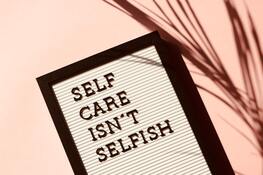When people first look at my resume or hear what my background is, almost all of them say something along the lines of "Oh, so you're a utility player!" Some of them say it like it's a good thing and others... not so much. I'm here to clear the air and explain what a utility player is and why utility players are an absolute asset on any team.
Utility Player defined: "[A utility player is] a player on a sports team who has the ability to play in several different positions, and often plays in different positions for their club." (Source)
In business, a utility player is basically the same as in sports: someone with many different skill sets that can work in different roles, as opposed to having only one specialty.
Frequently, people will parrot the phrase "a jack of all trades but a master of none," as if being a jack of all trades is a bad thing. They don't realize that the full quote is actually: “A jack of all trades is a master of none, but oftentimes better than a master of one." When problems arise, you want someone on your team that can handle many different types of problems instead of just one.
There are, of course, many benefits to specializing and having specialists on your team. These people have an in depth knowledge of one or two particular areas, which can be very useful. But to really make sure that your team can handle anything, you need utility players.
Utility players (like me) can take over multiple aspects of a project, depending on their skill set and sometimes, their different skill sets can compliment each other. Using myself as an example, I am a utility player with a background in IT (Information Technology), technical writing, and tech support. These skills combined help me understand the technical aspects of a project at a high level and also allow me to be able to explain them easily to people with less IT experience. How? Let's take a look at how each skill contributes:
When you have a solid team that includes at least one utility player, it's like having a Swiss army knife at the ready; someone that can tackle many different tasks or problems with ease. The next time that you're building a project team or a department, make sure to have a utility player on it. You won't regret it!
Thank you,
Alexa Medhus
Utility Player defined: "[A utility player is] a player on a sports team who has the ability to play in several different positions, and often plays in different positions for their club." (Source)
In business, a utility player is basically the same as in sports: someone with many different skill sets that can work in different roles, as opposed to having only one specialty.
Frequently, people will parrot the phrase "a jack of all trades but a master of none," as if being a jack of all trades is a bad thing. They don't realize that the full quote is actually: “A jack of all trades is a master of none, but oftentimes better than a master of one." When problems arise, you want someone on your team that can handle many different types of problems instead of just one.
There are, of course, many benefits to specializing and having specialists on your team. These people have an in depth knowledge of one or two particular areas, which can be very useful. But to really make sure that your team can handle anything, you need utility players.
Utility players (like me) can take over multiple aspects of a project, depending on their skill set and sometimes, their different skill sets can compliment each other. Using myself as an example, I am a utility player with a background in IT (Information Technology), technical writing, and tech support. These skills combined help me understand the technical aspects of a project at a high level and also allow me to be able to explain them easily to people with less IT experience. How? Let's take a look at how each skill contributes:
- Tech Support: Performing troubleshooting with people that don't understand the technology allows me to understand their thought process and how to talk to them so they'll understand what I'm trying to help them do.
- Technical Writing: Writing guides that are by nature for someone at a basic level of understanding and training people while using those same guides helps me you improve and simplify my explanations, as well as make my guides easier to work with.
- IT: Being in technology for most of my career has allowed me to understand basic computing and networking concepts despite not being an engineer or a developer. This allows me to have intelligent and meaningful conversations with those specialists that I mentioned earlier.
When you have a solid team that includes at least one utility player, it's like having a Swiss army knife at the ready; someone that can tackle many different tasks or problems with ease. The next time that you're building a project team or a department, make sure to have a utility player on it. You won't regret it!
Thank you,
Alexa Medhus

 RSS Feed
RSS Feed